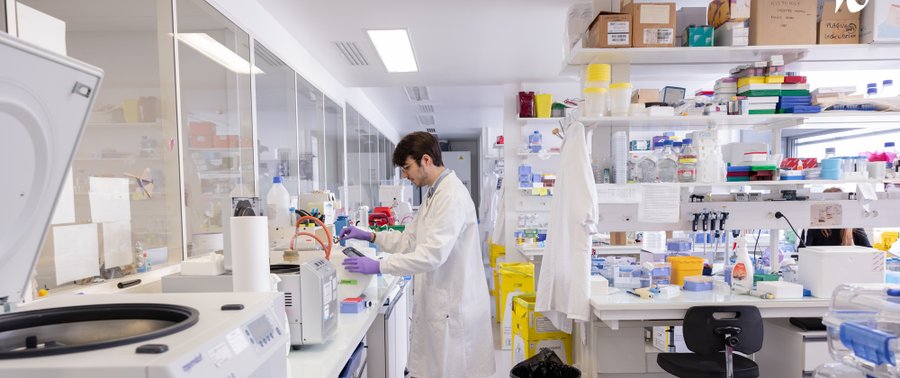Postdoctoral Position - Epilepsy research program (M/F)
Le poste
Descriptif du poste
The group of Dr. Edor Kabashi and Prof. Rima Nabbout is recruiting a postdoctoral scientist to develop projects investigating mechanisms of epilepsy, focusing on Developmental Epileptic Encephalopathies (DEEs).
The selected candidate will contribute to the Innov4-ePik RHU project, funded by the National Research Agency as part of the French 2030 investment program. This ambitious project aims to propose a new therapeutic paradigm for patients with drug-resistant epilepsy by bringing together 10 academic and industrial partners.
Context :
Epilepsies are a group of heterogeneous diseases having in common seizures onset and co-morbidities. Epilepsies affect around 1% of the population with a higher incidence in infants and children, with approximately 80% of these epilepsies initiating in childhood. In addition to medical, social, psychological, and economic burden due to seizures, epilepsies in childhood have a major impact on the neurodevelopment and autonomy in adulthood. To address these major challenges in childhood epilepsies, Innov4-ePiK program will establish game changing approaches to improve the outcome and quality of life of patients with DEEs. This is made possible thanks to the identification of innovative smart biomarkers based on clinical, electrical, biological, and imaging data from patients’ cohorts associated with in silico and in vivo models.
Project :
The main goal of this project is to investigate the physiopathological mechanisms of discovered potassium channel mutations in DEEs using in vitro and in vivo models.
The candidate will be able to explore a range of scientific questions using zebrafish genetic models, patient cell lines and organoids with the goal of taking novel genetic discoveries from the mechanistic investigation to therapeutic leads. Our close collaboration with expert technological platforms (e.g. multi-omics, iPSC, imaging, electrophysiology, single-cell analysis, bioinformatics, etc.) allows access to the latest tools for fundamental research, biomarker identification and development of automated drug screening assays leading to in-house clinical applications. The day-to-day collaboration with the reference centre for rare epilepsies team and the lessons learned from the clinical groups and the cohorts’ data collected will accelerate the translation from bench to bed.
Profil recherché
Your profile :
Highly motivated PhD in molecular biology, genetics, neuroscience or related areas ;
Good publication track record ;
Experimental skills in hiPSC culture will be appreciated ;
Additional skills in epilepsy, animal experimentation (zebrafish) and cell imaging are considered as a plus ;
Team player attitude and problem solving skills ;
Self-motivation and ability to work independently are vital.
(Knowledge of French is not a requirement.)
Contract :
Fixed-term contract: 2 years, renewable ;
During this period, the successful candidate will be encouraged to apply for an external postdoctoral fellowship to pursue the project ;
Starting date: flexible ;
Salary: on experience.
Your application :
Please send a motivation letter with a statement of research interest, a detailed CV with publication list and three references.
Envie d’en savoir plus ?

Rencontrez Guillaume, Doctorant en maladies génétiques cutanées

Rencontrez Maura, Chargée d’animation des programmes Éducation et Société
D’autres offres vous correspondent !
Ces entreprises recrutent aussi au poste de “Recherche fondamentale et appliquée”.





